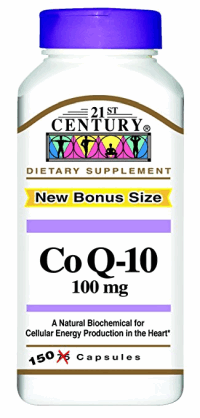Are You CoQ10 Deficient?
Although CoQ10 has been a well known migraine treatment for many years, for whatever reason we haven’t spent a lot of time talking about it here. But a recent article at the New York Headache blog helps us with a summary of information about this treatment.

CoQ10 is often taken to fight symptoms of heart conditions. Many people also take it to fight migraine.
The recent article at the NY Headache blog points out that studies have shown CoQ10 benefits for migraine patients, whether children, adolescents, or adults. (Read the article here: Migraines can be prevented with CoQ10 supplementation) The doses given in the trials were 1-3mg for children and adolescents, and 100mg 3x daily for adults.
Dr. Mauskop (author of the post) makes the logical assumption that you’re more likely to benefit from CoQ10 treatment if your levels are actually low. There is a lab test for this, which is often covered by insurance plans. But the post gives the following advice:
It is important to ask your doctor what the actual blood level was because the laboratories will report as normal values between 0.37 and 2.2 (Labcorp) or 0.44 and 1.64 (Quest Diagnostics), studies have shown that the level should be at least 0.7.
Consumer Labs recommends Swanson Ultra as a good budget brand of this supplement (follow the link to “other sellers” and you’ll see that Swanson sells this and it’s shipped by Amazon). The high-absorption recommendation is only slightly more – Doctor’s Best High Absorption CoQ10.
(Note: the “high absorption” version may allow you to get better results with a lower dosage. However, it contains black pepper extract, which may cause issues with some medications, such as propranolol. Talk to your doctor, especially if you’re taking a prescription medication.)
CoQ10 has been helpful for the prevention of migraine for many years. Hopefully with better testing we can match it to the patients who will benefit the most. It’s an inexpensive option that could make a big difference.
